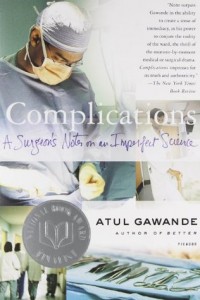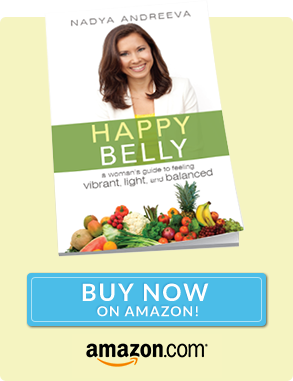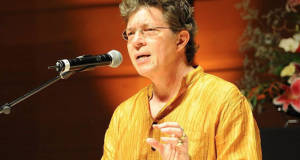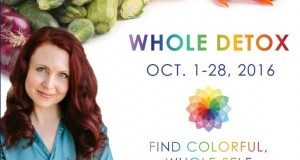Uncertainty and a true cost of practice in modern medicine
Thoughts and reflections on Complications – a must-read book by Atul Gawande.
As a daughter of 2 doctors who since childhood loved watching ER and then later was addicted to Dr House, understanding people’s bodies and helping those bodies be healthy is my life-long passion.
House, understanding people’s bodies and helping those bodies be healthy is my life-long passion.
The more I study diagnosis in Ayurveda, functional medicine approaches to treating chronic disease and just daily unease, and the more I work with clients, the more I understand how uncertain and experimental all kinds of medicine are (traditional, functional, Ayurvedic).
For a long time emails or questions at the workshops similar to these: Why do I get bloated? What can I do to stop being constipated? Why can’t I lose weight? Why am I tired? What supplements/herbs would you recommend? evoked frustration in me because there are no definitive simple answers without learning the entire story of the person. Every detail matters. Yes, there are general recommendations that could help but they are just an array of guesses based on other people’s cases with different bodies and histories.
However, to get personal answers both you and your practitioner have to be patient in order to understand root causes, lifestyle influence, evaluate diet, tap into emotional/psychological reasons and to test potential solutions.
Being patient when we don’t feel good doesn’t come easy, we all want a quick fix. Changing habits and being honest about the root cause is too heavy of a burden. This usually comes as a last resort in the second half of our life when we realize that quick fixes don’t last.
However, this article is not about changing habits, it is more about medicine and its nature. Recently, I picked up a book called Complications A Surgeon’s Notes on an Imperfect Science. It is written by a resident surgeon and show cases the decision making process involved in diagnosing and treating people. I found it absolutely fascinating and very realistic.
Here are a few thought-provoking quotes:
“We look for medicine to be an orderly field of knowledge and procedure. But it is not. It is an imperfect science, an enterprise of constantly changing knowledge, uncertain information, fallible individuals, and at the same time lives on the line. There is science in what we do, yes, but also habit, intuition, and sometimes plain old guessing. The gap between what we know and what we aim for persists. And this gap complicates everything we do.”
“No matter what measures are taken, doctors will sometimes falter, and it isn’t reasonable to ask that we achieve perfection. What is reasonable is to ask that we never cease to aim for it.”
“Practice is funny that way. For days and days, you make out only the fragments of what to do. And then one day you’ve got the thing whole. Conscious learning becomes unconscious knowledge, and you cannot say precisely how.”
“The important question isn’t how to keep bad physicians from harming patient; it’s how to keep good physicians from harming patients. Medical malpractice suits are a remarkably ineffective remedy.
(In reference to a Harvard Medical Practice Study)… fewer than 2 percent of the patients who had received substandard care ever filed suit. Conversely, only a small minority among patients who did sue had in fact been victims of negligent care. And a patient’s likelihood of winning a suit depended primarily on how poor his or her outcome was, regardless of whether that outcome was caused by disease or unavoidable risks of care. The deeper problem with medical malpractice is that by demonizing errors they prevent doctors from acknowledging & discussing them publicly. The tort system makes adversaries of patient & physician, and pushes each other to offer a heavily slanted version of events.”“There is a saying about surgeons, meant as a reproof: “Sometimes wrong; never in doubt.” But this seemed to me their strength. Each day surgeons are faced with uncertainties. Information is inadequate; the science is ambiguous; one’s knowledge and abilities are never perfect. Even with the simplest operation, it cannot be taken for granted that a patient will come through better off – or even alive. Standing at the table my first time, I wondered how the surgeon knew that he would do this patient good, that all the steps would go as planned, that the bleeding would be controlled and infection would not take hold and organs would not be injured. He didn’t, of course. But still he cut.”
“The core predicament of medicine – the thing that makes being a patient so wrenching, being a doctor so difficult, and being a part of society that pays the bills they run up so vexing – is uncertainty. With all that we know nowadays about people and diseases and how to diagnose and treat them, it can be hard to see this, hard to grasp how deeply uncertainty runs. As a doctor, you come to find, however, that the struggle in caring for people is more often with what you do not know than what you do. Medicine’s ground state is uncertainty. And wisdom – for both the patients and doctors – is defined by how one copes with it.”
“The possibilities and probabilities are all we have to work with in medicine, though. What we are drawn to in this imperfect science, what we in fact covet in our way, is the alterable moment-the fragile but crystalline opportunity for one’s know-how, ability, or just gut instinct to change the course of another’s life for the better.”
Why Complications is a worth-while read:
If you want to understand why diagnosing the real cause of the disease that you are struggling with is not easy or why herbs/medicine that work for someone with a similar issue as yours is not working for you, or if you just want to understand the mind of your practitioner better, I highly recommend it.
The book is also great at helping to understand why patience and persistence are a must in any healing process. It may take time to truly understand what is going on and find a treatment protocol that fits you.
After reading this book I’m even more convinced that every person should have a basic education on understanding their body and how it works. Ayurveda is a beautiful framework that can help to understand the complexity of bodily functions while also helping each one of us to recognize the first signs of things going off balance. When you have the knowledge to correct small deviations from a fully balanced state there are less chances you will need to go through a complicated process of trying to reverse a major imbalance that grew into a disease.
In my dream world every woman can use the signs from the body to assess a general state of well-being. By checking tongue, pulse, and elimination she would be able to notice the smallest deviations from harmony in herself and her family and use teas, herbs, foods, and changes in daily routine to re-create balance.
Fingers crossed for the dream to come true! For now, enjoy this excellent read!











